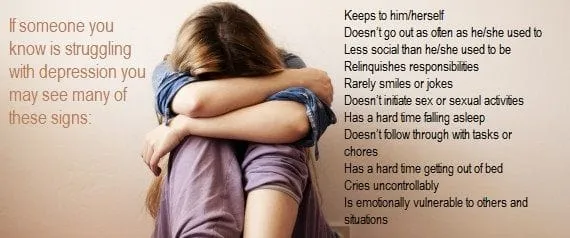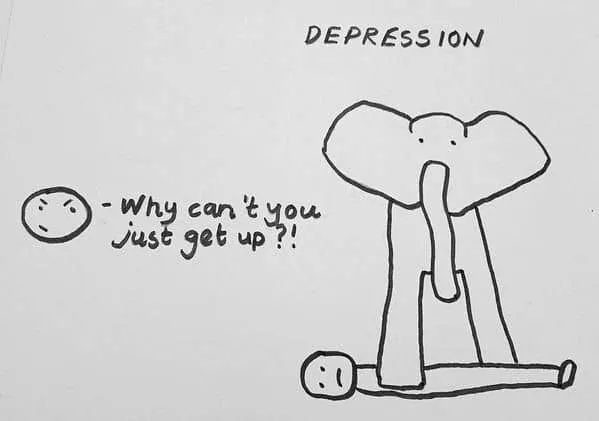16 Research-Backed Ways To Love Yourself Unconditionally… 
Loving ourselves is something that is much easier said than done. In fact, learning to love and appreciate oneself is something that often gets pushed to the back burner, in favor of life’s many stresses and concerns. However, the relationship we have with ourselves is the most important. In order to truly find your way to self-acceptance, you have to navigate a long and complicated road that is filled with self-doubt, failure, uncertainty, and negative outside influences. If you’re just starting the journey of loving yourself, it can all feel a little bit overwhelming.
But what if you had a little bit of help, in the form of some tried-and-true methods of reflection, self-care, and self-acceptance? Here are some amazing tips from Marc and Angel Hack Life that can assist you in learning to love yourself.
#1. Start telling yourself what you love about yourself.
In your own life it’s important to know how spectacular you are. You really have to look in the mirror and be kind. Because what we see in the mirror is often what we see in the world. Our disappointment in others often reflects our disappointment in ourselves. Our acceptance of others often reflects our acceptance of ourselves. Our ability to see potential in others often reflects our ability to see potential in ourselves. Our patience with others often reflects our patience with ourselves. You get the idea – you’ve got to show yourself some love first and foremost.
#2. Be one with what is.
Something that’s really difficult, but totally worth it, is giving up on being perfect and beginning the journey of becoming your true self. The most beautiful part of this journey is simply returning to the peaceful feeling of being. This peace is the result of retraining your mind to process life as it is, rather than as you think it should be.
#3. Focus less on winning the approval of others.
Remind yourself that you don’t have to do what everyone else is doing. And you don’t have to get permission to do it differently either. Your time on this planet is precious. As the saying goes, “What you do today is important, because you are exchanging a day of your life for it.” Don’t wait around for someone else to give you permission to live.
#4. Distance yourself from those who bring you down.
Being in no relationship is better than being in a wrong one. Don’t worry too much about folks who don’t worry about you. Know your worth! When you give yourself to those who disrespect you, you lose. Your friends in life should motivate, inspire and respect you. Your circle should be well rounded and supportive. Keep it tight. Quality over quantity, always.
#5. Forgive your past self.
When you confront the dark parts of yourself, and work to banish them with the light of your forgiveness, your willingness to wrestle with your demons in this way will cause your angels to sing. It’s just a matter of accepting that sometimes good people like you make bad choices. It doesn’t mean you’re bad; it means you’re human. Get bored with your past; it’s over. Forgive yourself for what you think you did or didn’t do, and focus on what you will do starting now.
#6. Start making the changes you know you need to make.
Just because something made you happy in the past doesn’t mean you have to keep it forever. If you want to see changes in your life today, you’ll have to do things that you’ve never done before. Different input = different output. Move away from the things that drain you and move toward the thoughts and activities that empower and fulfill you.
#7. Embrace the mistakes you haven’t even made yet.
To be successful in the long run, you must fail sometimes. So don’t let the fear of making the wrong decision prevent you from making any decision at all.
#8. Show gratitude for who you are and what you have right now.
No, you won’t always get what you want. And no, you won’t always be exactly where you want to be. But remember this: There are lots of people who will never have what you have right now. So use pain, frustration and inconvenience to motivate you rather than annoy you. You are in control of the way you look at life.
#9. Do something every day that makes you happy.
There’s a big difference between empty fatigue and gratifying exhaustion. Life is too short. Invest in the activities you deeply care about. A good life is about making a good decision every day to do something that moves you – caring for yourself by doing things you care about. It’s a matter of realizing that there’s nothing selfish about self-care. Because we can’t give what we don’t have. You have to experience life on your terms before you can be life-giving to others.
#10. Give yourself a fair chance to explore new ideas and opportunities.
Don’t let not knowing how it’ll end keep you from beginning. When we act, uncertainty chases us out into the open where opportunity awaits.
#11. Listen to your intuition and be honest with yourself about everything.
We cannot speak with integrity about a lifestyle we are not living. We don’t need more dazzling storytellers; we need more genuine ones. Listen to that inner voice. Confidence comes from knowing that what you’re doing is right, and that what you’re doing is right for YOU.
#12. Believe in your abilities.
All things are possible! The key is to identify what you want, claim it as part of who you are, and believe that you are worthy to have it.
#13. Focus on writing your story, instead of reading, watching and hearing about everyone else’s.
And when you catch yourself comparing your life to someone else’s, remember that people often only show their highlight reel – especially online – not their reality.
#14. Pay close attention to your life as you’re living it.
One of the greatest presents you can give yourself (and your loved ones), is to be present, every chance you get. Your life is not between the moments of your birth and death; your life is between now and your next breath. Distractions are in the palms of our hands these days, but we need to remember to look up more often. So much is lost when we don’t.
#15. One of the greatest presents you can give yourself (and your loved ones), is to be present, every chance you get.
Your life is not between the moments of your birth and death; your life is between now and your next breath. Distractions are in the palms of our hands these days, but we need to remember to look up more often. So much is lost when we don’t. All self-misery has its roots in self-pity, and all self-pity is rooted in taking life too seriously. If you take everything too seriously, especially yourself, you’ll wind up fearing every new step you take. Loosen up and laugh it off when you can – especially when things don’t go as planned. People with a good sense of humor have a better sense of life. You grow up the day you have your first real laugh at yourself and your circumstances.
#16. Go out of your way to be loving and kind to others too.
Almost everything comes full circle. People who love themselves come across as very caring, generous and kind to others too; they express their self-confidence through humility, forgiveness and inclusiveness. So seek to understand others before you attempt to judge.
The ‘Yes-Brain’ Approach to Parenting and Life
Teach your kids these powerful skills, so they can dynamically engage their world.
By Daniel J. Siegel, M.D.

Parenting using a Yes-Brain strategy isn't about being permissive. Instead, it involves providing structure, discipline and the wisdom needed to reinforce a child’s ability to live in a receptive state, which encourages curiosity and bolsters well-being.
Did you know that your brain has two fundamental states that shape how you experience life in the moment?
In my educational workshops and presentations, I invite participants to learn about these two states directly. To do so, I have them close their eyes and simply become aware of the sensations that emerge when I say the word “no” harshly several times, and then I pause before calmly repeating the word “yes.”
What I call the “No-Brain” state is described by many as involving a sensation of tightness, constriction, anger, fear, sadness and a feeling of shutting down, along with heaviness in the chest and an urge to run away. This pattern is part of what can be called a reactive state, which researchers have found is created during conditions of threat.
Two branches of our autonomic nervous system – which regulates certain processes, like our blood pressure – can be activated as we react to a threat. One is an accelerating sympathetic branch that gets us ready to fight, flee or freeze as our bodies prepare for the potential harm. The other is a parasympathetic branch, which essentially puts on the brakes; this branch can also become activated if we feel completely helpless, having us collapse or faint in response to the overwhelming threat. With either of these activating or deactivating states, we are now reactive and no longer receptive to what is going on around us or inside us. This No-Brain reactivity shuts off our connections to others and ourselves.
In contrast, what I call the “Yes-Brain” state balances our autonomic system. So instead of being in a reactive state, we now become receptive to our inner world and our interactions with those around us in a more balanced way. This receptive state turns on what researcher Stephen Porges has called the “social engagement system,” supporting an open, curious, connecting stance. That’s reflected in the feelings of being calm, seen, safe and activated that people describe when they finally hear the word “yes” in the experiential exercise I do.
When we learn to parent using a Yes-Brain strategy, we are offering structure and discipline along with sharing the wisdom needed to reinforce a child’s ability to live in this receptive state. Yes-Brain parenting is not about being permissive. It’s about knowing how to skillfully create structure and learning in your child’s life so that the child comes to their inner and outer experiences with a sense of robustness and optimism.
There are four components to this approach, each of which builds on the Yes-Brain’s state of integration in the nervous system. Integration is the linking of differentiated parts of something – such as a brain or a relationship – so that that system is well regulated. The ways we regulate our attention, emotion, mood, thought, memory, behavior and morality are each determined by the brain’s integrative regions, where areas link differentiated circuits. “Executive functions” that are part of emotional, cognitive and social skills come from this set of integrative regulatory capacities.
Our children can learn the four foundations of a Yes-Brain way of living by how we communicate with them. In our book on this topic – “The Yes Brain: How to Cultivate Courage, Curiosity, and Resilience in Your Child” – my co-author, Tina Payne Bryson, and I use a phrase that helps remind parents how this happens: “Where attention goes, neural firing flows, and neural connection grows.” In this way, parents can help foster the growth of integration in their child’s brain in how they communicate with their child and help the child focus his or her attention.
When that pattern of communication is integrative in our relationships, the child’s brain is activated to grow in an integrative way (differentiating and linking) so that regulatory capacities, which support executive functioning, can grow well. For example, if a parent has expectations that a child will be outgoing and love sports, but instead the child is more reflective and prefers quiet time, drawing or playing music, being able to see the child for who he or she really is would be embracing differentiation. Linking to the child’s interests in the expressive arts would be a way of then providing integrative communication that honors these differences and establishes compassionate care and connections that research shows allow a child to thrive and feel secure.
Here are the four foundations of a Yes-Brain approach (for acronym lovers like me, this spells the French cheese BRIE):
1. Balance. Our inner experience of feelings is what gives life vitality, meaning and fullness. Yet feelings can sometimes become chaotic and out of control, or rigid, imprisoning us in a rut of our mind’s own making. By helping kids learn about the nature of their emotional lives and how any of us can become lost in these non-integrative states of rigidity or chaos, we can teach them how to ride the waves of these inner feelings and not become reactive when experiencing them fully. As Louisa May Alcott writes in “Little Women,” “I’m not afraid of storms, for I’m learning how to sail my ship.”
2. Resilience. Sometimes, though, the ship of your life does indeed get tossed around in chaotic waves or stuck on a rigid shore. When we’ve entered the No-Brain state of reactivity – especially if this happens repeatedly and becomes a habit of our mind – we can become out of balance. We are no longer receptive to learning from others or even openly aware of what is happening inside of us.
Learning to detect when we’ve left the Yes-Brain state of receptivity and then altering our state to reenter this open, connecting way of being is a key part of being resilient. Facing challenges fully means monitoring our inner state and then modifying it to bring us back into balance.
3. Insight. Research reveals that children, adolescents and adults who are aware of their inner life of sensations, images, feelings and thoughts have better executive functioning and regulation and are even more compassionate and caring toward others.
Insight can be taught by building what I call mindsight skills – the capacities to sense the inner subjective lives of oneself and others, and then integrate these in your life. One aspect of mindsight is called mental time travel, the ways we link our past, present and future. Knowing the past means learning from our prior experiences. Being in the present involves having a receptive awareness to what is happening in the moment. When we anticipate and plan for the future, we’re able to become active authors of our own unfolding life story.
The research is clear: What we do as parents can shape our children’s capacities for insightful living.
4. Empathy. This fourth foundation of living with a Yes-Brain approach to life can also be taught to children by their parents. Empathy has at least five facets:
1) Empathic resonance is how we tune into the emotional state of another and feel, to some degree, their feelings. That’s how we resonate with someone else, and how we join with others, but do not become the other – we remain differentiated even as we are linked.
2) Empathic understanding is how we make sense of another’s inner thoughts and feelings.
3) Perspective-taking is how we try to see from another’s point of view.
4) Empathic joy is how we feel the joy, happiness and thrill in another’s success and well-being.
5) Empathic concern is how we feel another’s suffering and consider how we might be able to compassionately help reduce that person’s pain.
By taking a Yes-Brain approach, a parent, teacher or anyone helping children and adolescents grow can support them in cultivating these learnable integrative skills of balance, resilience, insight and empathy. We can hone these same skills as adults as well. These skills are fun to acquire and fundamental to living a life of courage, curiosity and well-being. Let’s say yes to life, and enjoy the journey!
What You Need To Get Right About Depression
Depression is very common but often misunderstood. Dr. Patricia Deldin of the Michigan Depression Center dispels common myths and misconceptions of depression and explains how it can be better understood and handled.
Depression is often misunderstood in the public. Sometimes people think that people with depression are weak, or lazy, when in actuality um people with depression are struggling with a very complex illness that has biological, psychological, and social causes and consequences. Depression is extremely common, it affects one in four women, and about one in five or six men. And those who don’t experience depression themselves often have a friend, or a family member who are experiencing it. The most commonly experienced symptoms of depression are sad mood, and lack of pleasure. People often note sleep changes and energy changes. And almost everybody I’ve ever interviewed, which would be over two thousand people with depression, all experienced the feelings of worthlessness. Almost every single one. Depression is an invisible illness, it is not one that you can see just by looking at somebody. Normal sadness can occur in response to life events. Depression, at least in its later stages, tends to be disconnected from life events. So, depression and sadness share the sadness, but depression is so much more than just sadness. And, as a matter of fact, some people think the worst part of depression is not experiencing pleasure. There is a numbness in how sometimes when people have severe depression feel. “Pull yourself up by the bootstraps. You should get yourself out of this.” Or, things like, “Your life is great, what do you have to be depressed about?” Depression is definitely not related to someone’s character, or moral shortcomings. And it is really interesting to think that if medication can help people who have these illnesses, how could it really be about their morality? Depression can affect every aspect of a person’s life. It can affect their job performance, their family relationships, their divorce rates are higher, it can affect their parenting abilities. And depression is one of the leading causes of economic burden of any diseases. People are often surprised to hear that it costs more to the society than cancer or heart disease. If depression goes untreated, it could turn out a variety of different ways. It could be that people stay at the same sort of negative level that they’ve been, or sometimes it can get much worse. So, it can with each passing depression, some people feel worse and worse, so that they might approximately about twenty percent of people, I believe, with major depression end up making some form of suicide attempt. So, the question is how do we get people to feel better so that they can think better, or vice versa? How do we get them to think differently so that they can feel differently? Usually people come at depression with one form of treatment or the other. They will either go and get medication, or they’ll go and get psychotherapy, or they will do nothing. In fact, the data supports that the best treatment for depression is a combination of medication and psychotherapy. There’s lots of strategies that people can use in order to feel better. Improving their sleep and sleep hygiene, exercising thirty minutes a day, um particularly aerobic exercise seems to be very effective for people with depression. And for the social piece, I’d really recommend to try and develop more social engagement with people because again I think that is one way that people can actually help themselves to feel better. The good news is that depression is a very treatable illness. The majority of people who get care, particularly if they can get care early, will end up doing very well.
Understanding Ourselves

By Ewa Schwarz
Each of us has an incredible path in life. The challenge is to find out as much as we can to understand ourselves and work through all the things that keep us from inner peace. Will we ever really know and have an understanding of what our path is? It’s possible. One can move from having no idea, to having a vague grasp (filled with doubts), to becoming a bit surer, to knowing with all your heart. For all of us, the most important thing to learn is to better understand ourselves.
Our life's experiences can make us feel like the little ball in a pinball game. Up, down, wham, bam, over and over. Yet every single one of those experiences add up to the total being of who you are now. These experiences will eventually lead you to develop a depth of compassion and understanding for yourself and for others you never dreamed was possible.
As humans, we exist and make decisions either from a space of fear or a space of love. "If it ain't love you're feeling, it's fear"! We experience ongoing fear as a result of needing to protect ourselves against future pain. Most of you readers have experienced high levels of emotional pain as children that have continued on relentlessly into adulthood.
As we go through life, we have varying degrees of success protecting ourselves, but ultimately, we end up feeling hurt again and again largely from not understanding ourselves. Living in this defensive/offensive frame of mind is living in fear, limiting our ability to see life as a positive experience.
It is possible to access those hurt parts where we really don't understand ourselves and go through a healing process that eventually allows us to experience the world as a safe and pain-free place.
Not only do our lives improve, but also other people's behavior becomes easier to understand. From this space, compassion develops. When we reach that point of understanding ourselves, it finally makes life worth living.
One of the first steps we can take to find peace inside of our clamoring minds is to become aware of all the judgments we have that prevent us from understanding ourselves and the rest of the world. All the anger we experience towards others is a reflection of the anger we have towards ourselves. All the judgments we place on the people around us can be found as similar judgments we have about ourselves. We don't really understand ourselves.
Life only acts as our mirror, yet we keep trying to change the reflection we see. Needless to say, we keep on getting the same reflection that we don't like because of a lack of understanding ourselves. When we work towards changing and understanding ourselves, it's only then our reflection in the mirror changes.
Things Successful People (Who Are Actually Happy) Do Differently
Dr. Travis Bradberry

Coauthor Emotional Intelligence 2.0 & President at TalentSmart
Achievement rarely produces the sense of lasting happiness that you think it will. Once you finally accomplish the goal you’ve been chasing, two new goals tend to pop up unexpectedly.
We long for new achievements because we quickly habituate to what we’ve already accomplished. This habituation to success is as inevitable as it is frustrating, and it’s more powerful than you realize.
The key to beating habituation is to pursue, what researchers call, enduring accomplishments . Unlike run-of-the-mill accomplishments that produce fleeting happiness, the pleasure from enduring accomplishments lasts long after that initial buzz. Enduring accomplishments are so critical that they separate those who are successful and happy from those who are always left wanting more.
Researchers from the Harvard Business School studied this phenomenon by interviewing and assessing professionals who had attained great success. The aim was to break down what these exceptional professionals did differently to achieve both long-lasting and fulfilling success.
The researchers found that people who were both successful and happy over the long term intentionally structured their activities around four major needs:
Happiness: They pursued activities that produced pleasure and satisfaction.
Achievement: They pursued activities that got tangible results.
Significance: They pursued activities that made a positive impact on the people who matter most.
Legacy: They pursued activities through which they could pass their values and knowledge on to others.
Lasting fulfillment comes when you pursue activities that address all four of these needs. When any one of them is missing, you get a nagging sense that you should be doing more (or something different).
The behaviors that follow are the hallmarks of people who are successful and happy because they address these four needs. Try them out and see what they do for you.
They are passionate. Jane Goodall left her home in England and moved to Tanzania at age 26 to begin studying chimpanzees. It became her life’s work, and Goodall has devoted herself fully to her cause while inspiring many others to do the same. Successful, happy people don’t just have interests; they have passions, and they devote themselves completely to them.
They swim against the current. There’s a reason that successful and happy people tend to be a little, well, different. To be truly successful and happy, you have to follow your passions and values no matter the costs. Just think what the world would have missed out on if Bill Gates or Richard Branson had played it safe and stayed in school or if Stephen King hadn’t spent every free second he had as teacher writing novels. To swim against the current, you have to be willing to take risks.
“To be normal is the ideal aim of the unsuccessful” ~ Carl Jung
They finish what they start. Coming up with a great idea means absolutely nothing if you don’t execute that idea. The most successful and happy people bring their ideas to fruition, deriving just as much satisfaction from working through the complications and daily grind as they do from coming up with the initial idea. They know that a vision remains a meaningless thought until it is acted upon. Only then does it begin to grow.
They are resilient. To be successful and happy in the long term, you have to learn to make mistakes, look like an idiot, and try again, all without flinching. In a recent study at the College of William and Mary, researchers interviewed over 800 entrepreneurs and found that the most successful among them tended to have two critical things in common: they were terrible at imagining failure, and they tended not to care what other people thought of them. In other words, the most successful entrepreneurs put no time or energy into stressing about their failures as they see failure as a small and necessary step in the process of reaching their goals.
They make their health a priority. There are an absurd number of links between your health, happiness, and success. I’ve beaten them to death over the years, but the absolute essential health habits that successful and happy people practice consistently are good sleep hygiene (fights stress, improves focus, and is great for your mood), eating healthy food (helps you to focus), and exercise (great for energy levels and confidence).
They don’t dwell on problems. Where you focus your attention determines your emotional state. By fixating on your problems, you create and prolong negative emotions and stress, which hinder performance. However, by focusing on actions to better yourself and your circumstances, you can create a sense of personal efficacy that produces positive emotions and improves performance. Successful, happy people don’t dwell on problems because they know that they’re most effective when they focus on solutions.
They celebrate other people’s successes. Insecure people constantly doubt their relevance, and because of this, they try to steal the spotlight and criticize others in order to prove their worth. Confident people, on the other hand, aren’t worried about their relevance because they draw their self-worth from within. Instead of insecurely focusing inward, confident people focus outward, which allows them to see all the wonderful things that other people bring to the table. Praising people for their contributions is a natural result of this.
They live outside the box. Successful and happy people haven’t arrived at where they are by thinking in the same way as everyone else. While others stay in their comfort-zone prisons and invest all their energy in reinforcing their existing beliefs, successful people are out challenging the status quo and exposing themselves to new ideas.
They keep an open mind. Exposing yourself to a variety of people is useless if you spend that time disagreeing with them and comforting yourself with your own opinions. Successful, happy people recognize that every perspective provides an opportunity for growth. You need to practice empathy by putting yourself in the other person’s shoes so that you can understand how their perspective makes sense (at least, to them). A great way to keep an open mind is to try to glean at least one interesting or useful thing from every conversation you have.
They don’t let anyone limit their joy. When your sense of pleasure and satisfaction are derived from comparing yourself to others, you are no longer the master of your own happiness. When successful, happy people feel good about something that they’ve done, they don’t let anyone’s opinions or accomplishments take that away from them. While it’s impossible to turn off your reactions to what others think of you, you don’t have to compare yourself to others, and you can always take people’s opinions with a grain of salt. That way, no matter what other people are thinking or doing, your self-worth comes from within. Regardless of what people think of you at any particular moment, one thing is certain—you’re never as good or bad as they say you are.
Bringing It All Together
People who are successful and happy focus on activities that address a variety of needs,
What other habits can make you happy and successful in the long term? Please share your thoughts
A Giggle a Day Keeps the Doctor Away!

Laughter truly is the best medicine: we're always being told that, but there's actually more to a good giggle than just raising our spirits for a couple of minutes.
Research shows that while children laugh up to 400 times a day, adults do it only 17 times a day, on average.
In fact, laughter therapy is a big deal and can improve your health in lots of different ways. Just check out these 10 benefits of chuckling...
1. Laughter boosts your immune system
Researchers have found that laughter actually boosts the immune system, increasing the number of antibody-producing T cells. This then makes us less likely to get coughs and colds. It also lowers the levels of at least four hormones that are associated with stress, so after a good giggle you should be far less tense and anxious.
2. Laughter relieves pain
A good chortle has been found to reduce pain. Not only does it distract you from aches, but it releases feel good endorphins into your system that are more powerful than the same amount of morphine.
3. Laughter improves your social life
If you can make people laugh, then you're likely to have more friends, because everyone loves a joker. You're also likely to achieve more at work: if you have a good sense of humor you'll be more productive, a better communicator and team player. In fact, most things we laugh at aren't necessarily actual jokes, but comments in everyday conversation. Laughter is as much about social relationships as it is about humor.
4.Laughter helps relieve depression
Laughter has long been known to help people who are suffering from the either social anxiety disorder or full-blown depression. Laughing reduces tension and stress, and lowers anxiety and irritation, which are all major factors that contribute to the blues.
5. Laughter boosts your relationship
If you're looking to find a new partner, then laughter will help you find a new mate. Men love women who laugh in their presence and women actually laugh 125% more than men. And if you're already with someone, then a shared sense of humor is an important factor in keeping your relationship running smoothly.
6. Laughter gives you a mini-work-out
We've probably all used the phrase 'my sides ache' after laughing too much. Well, it's no real surprise. A good belly laugh exercises the diaphragm, contracts your abdominal muscles and also
works your shoulders. This will make you feel a lot more relaxed. In fact, laughing 100 times is the equivalent to 10 minutes on the rowing machine or 15 minutes on an exercise bike!
7. Laughter protects your heart
According to a study by heart specialists at the University of Maryland, people with heart disease were 40% less likely to laugh in a variety of situations compared to people of the same age without heart disease. Laughter has been found to benefit the way blood flows around the body, reducing the likelihood of heart disease. The research said that 15 minutes of laughter a day is as important for your heart as 30 minutes of exercise 3 times a week1
8. Laughter lowers your blood pressure
People who laugh a lot on a regular basis have lower blood pressure than the average person. When people have a good laugh, the blood pressure increases at first, but then it decreases to levels below normal. Breathing then becomes deeper and this helps to send oxygen-rich blood and nutrients throughout the body.
9. Laughter improves your breathing
Laughter empties your lungs of more air than it takes in resulting in a cleansing effect - similar to deep breathing. This is especially helpful for people who are suffering from respiratory ailments, such as asthma.
10. Laughter helps you lose weight
Burning off calories by laughing might not sound as if it has much use, but a hearty chuckle raises the heart rate and speeds up the metabolism. If you're dieting, think about adding laughter to your exercise regime. A good sitcom might easily keep you laughing for 20 minutes or more.
By the American School Counselor Association
Test anxiety is almost universal. In fact, it is unusual to find a student who doesn't approach a big test without a high level of anxiety. Test anxiety can cause a host of problems in students, such as upset stomach, headache, poor focus, fear, irritability, anger and even depression. New research is helping to better define how emotional stress and anxiety affect learning and academic performance.
Stressful emotions can inhibit a student's ability to absorb, retain and recall information. Anxiety creates a kind of "noise" or "mental static" in the brain that blocks our ability to retrieve what's stored in memory and also greatly impairs our ability to comprehend and reason. The key to understanding how anxiety inhibits cognitive and physical performance lies in understanding how emotions affect the rhythmic activity in the nervous system.
Feelings such as frustration, fear, anger and anxiety cause the neural activity in the two branches of the autonomic nervous system to get out of sync. This, in turn, affects the synchronized activity in the brain, disrupting our ability to think clearly. On the other hand, uplifting feelings such as appreciation lead to increased harmony and synchronization in the brain and nervous system, which facilitates our ability to think more clearly.

Research has shown that providing students with tools and strategies that build both emotional skills and healthy physical habits when preparing for a test can help them overcome test anxiety and the associated symptoms, while improving their ability to prepare for and perform on critical testing. It's important to help students identify what they are feeling and give them tools that will help them learn to manage emotions such as anxiety, self-doubt, anger or frustration. The proper physical habits enable students to have enough energy and stamina for their brain to do its job of thinking and analyzing for a sustained period of time.
Here are a few tips from the Institute of HeartMath based on its TestEdgeTM programs. Share these with your children ahead of time to better prepare them emotionally and physically for test taking.
Tips for Students
Practice the neutral tool: When you have uncomfortable feelings about whether you will do well on the test, practice the neutral tool. It’s important to catch negative mind loops that reinforce self-doubt or uncomfortable feelings. Every time you catch a negative thought repeating itself, stop the loop and practice going to neutral. Start by focusing on the area around your heart. This helps to take the focus off the mind loop. Then breathe deeply. Breathe as if your breath is flowing in and out through the center of your chest. Breathe quietly and naturally, four-five seconds on the in-breath, and four-five seconds on the out-breath. While you’re breathing, try and find an attitude of calmness about the situation. Do this in the days leading up to the test, right before and during the test.
Address the what-if questions: A lot of times before we have to do something like take a test, much of the anxiety we feel is a build-up from negative "what-if" thoughts. What if I fail, what if I can't remember anything, or what if I run out of time. Try writing a what-if question that is positive and can help you take the big deal out of the situation and begin to see things in a different way. Examples of these kinds of questions are, "What if I can remember more than I think I can?" "What if I can feel calmer than I think I can?"
Think good thoughts: Science is showing that good feelings like appreciation can actually help your brain work better. When you feel nervous or anxious, try this. You can do it as many times as you need to or want to. Remember something that makes you feel good. Maybe it is your pet or how you felt when you got a big hug from your mom, or how you felt after a super fun day at the amusement park with your friends. After you remember how you felt, hold that feeling. Pretend you are holding it in your heart. Let yourself feel that feeling for 10-20 seconds or more. It’s important to let yourself really feel that good feeling all over again. Practice this tool right before the big test.
Get enough sleep: Big tests require a lot of energy and stamina to be able to focus for several hours. Make sure you get at least eight-10 hours of sleep the night before the test.
Have fun: Do something fun the night before to take your mind off the test, like see a movie, play a board game with your family or participate in a sports activity. That way your mind and emotions are more relaxed in the time leading up to the test.
Eat a hearty breakfast: The brain needs a lot of energy to maintain focus on a big test for several hours. Eat a hearty and healthy breakfast, including complex carbohydrates and protein to make your energy last as long as possible. Foods such as eggs, cereal and whole-wheat toast help energize your brain to think more clearly and much longer compared with the fast-disappearing bolt of energy from drinking a soda pop or eating a cookie for breakfast. For a snack food, bring simple foods such as peanut butter and crackers, cheese and crackers or a burrito to sustain energy until lunch.
Practicing these tools in advance of and during a test can help students limit test anxiety and perform even better on their school work.
10 Helpful Tips to be more Prepared this School Year 
This article was created specifically for parents of middle school students but can be helpful for parents of Elementary school and High school students as well.
For many kids, the transition to middle school couldn't come at a worse time. Just as your child is wrestling with his or her own roller-coaster of emotions, struggling to understand and accept the physical changes in her body, or recognizing the awkward agony for befriending the other sex, everything about the school day is changing too. While most children look forward to leaving elementary school and headlining into middle school as a step toward adulthood it’s not always as fun as they may hope. By staying involved in your child’s life, you can anticipate difficulties and be better equipped to help your child roll with the punches. Research has shown that parent participation in education is strongly related to student achievement. The key during this time is to balance your support while promoting responsibility and independence in your child.
Here are a few ways to do just that:
1. Become informed about your child’s new school by attending orientations, read school guides and student handbooks and visit their website regularly for current information.
2. Students of all ages benefit when family and school cooperate and have a positive relationship. If you have questions or concerns don’t hesitate to call or email the school staff. Know the names of the school staff, the homeroom teacher and the school counselor.
3. Ask to see their assignment notebooks and communicate with their teachers regularly.
4. Organization and time management skills must be developed so students will not feel overwhelmed. Be sure to limit after-school recreational activities, provide a quiet study area and set rules and limits about TV and computer use.
5. Know the dress code for your school and check to see that your child is wearing “school friendly” attire daily. This can be an issue in school and can cause unnecessary stress from your child.
6. Check the calendar for your specific school. Know when report cards go out, if there are early release days and any dates of special activities.
7. Talk to your child about school and peers. Listen for comments that reflect what they are feeling and thinking. Expect your child to make mistakes and have personal struggles. Offer emotional support and guidance.
8. Peer acceptance and self-esteem issues become increasing important. Provide opportunities for your child to develop their interests and socialize with friends. Encourage the importance of building a healthy self-concept and being true to yourself. Be sure to monitor their choices of friends and activities so they don't get involved with the wrong crowd or make drastic negative changes to achieve acceptance and approval.
9. Continue to have healthy conversations with your child about, school, friends, and life. Remind your child you will always be there to listen whenever they want to talk.
10. You should never have to feel like you have to deal with this all on your own. Consult with other parents to get support and advice or meet with one of our therapist if you are concerned about your child's change in mood or behavior.
Signs of Depression

The simple Reality of Depression
By Isaac Sochaczewski, LMHC

Depression is REAL. Globally, more than 350 million people of all ages suffer from depression.
When someone is struggling with depression they are incapable to getting out. They are STUCK. They can’t think outside of the negative and hopeless thoughts they have about themselves and the world around them. They feel sick to their stomachs and can’t seem to do anything about it. They can’t function normally throughout their day. Many tasks are neglected. Many stressors are avoided. Even fun activities no longer interest them. Days, weeks and months can pass by without a trace of recognition. You are just there void of LIFE.
What can I say when my loved one is struggling with Depression?
By Isaac Sochaczewski, LMHC

Empathize
The Healing Power of Touch
By Isaac Sochaczewski, LMHC

Someone struggling with depression feels so ALONE. However, your loved one doesn't need to be alone. Offer hugs and kisses. Be with him or her even if it’s in the bedroom not saying anything. Make lunches and dinners. Take over your loved one’s chores. Show by your actions that you CARE. Of course living with your loved one while he/she is depressed is very difficult. So, talk to your friends. Ask for help from others. Speak with a therapist for guidance. But, don’t project your feelings onto your loved one, he/she is not ready to hear them and it will just be more detrimental. If you continue to see your loved one suffer with depression you can suggest therapy as an option. This will help lessen the burden placed on you and help your loved one work out of this depression.
How a good therapist can help someone struggling with depression.
A good therapist will work with the client where he is right now and never force him to get to where he needs to be before he is ready.
A good therapist will display patience and support and listen and validate the client’s thoughts and feelings. Although, the therapist may feel the need to challenge the clients thoughts and feelings which is common practice in Cognitive Behavioral Therapy (CBT) is only done when the client is ready.
A good therapist we consult with family members and make sure a healthy support network is in place. The therapist can’t help the client when he is out of the office and the client will still need help when he’s at home.
A good therapist will assess for possible suicidal thoughts or plans and leave nothing up for chance.
A good therapist will not offer advice such as exercising more or implementing positive affirmations. Although research proves exercise is very effective in reducing depression and positive affirmations can change negative thinking patterns; at this point it is totally ineffective. The client can barely get dressed and make it out the door. You cannot expect the client to make even simple commitments or changes right now.
A good therapist will offer reassurance in response to the client’s concerns. For example if the client asks, “Will things ever get better? “ The therapist allow the client to slowly see that hope is attainable. Again, this is only when the client asks for reassurance and should not be initiated by the therapist.
A good therapist will be available to the client in person or by phone should a crisis arise and know how to sooth the client and utilize necessary resources to help deescalate the concerning thoughts, feelings and behaviors the client is exhibiting.
A good therapist who can work with the client though the difficult stages of depression can really help jump-start the process and create a positive prognosis for the client.
When The Spark Dies Out
By Isaac Sochaczewski, LMHC

In long term relationships there may be a time when the spark dies out and you feel like you’re running on empty. No love, no affection, just you and your partner living your separate lives together. You may feel more distant, less intimate or under appreciated by your partner. If this is the first time emotional dissonance has set into your relationship it can be overwhelming and difficult to tackle. You may feel all these feeling but never really express your concerns with your partner. By keeping quiet you are setting the stage for a negative cycle of anger and avoidance. Instead find the time and place and let your partner know how you've been feeling the past few weeks or months. Without pointing fingers of blame, express to your partner what you would like, what you have been missing, and what you hope for in this relationship. Encourage your partner to share his or her feelings as well. Then, begin to explore together what can be done to create a sense of harmony and closeness. It may be difficult and it can feel disingenuous at first as both of you try awkwardly to find yourselves back together. During this time guidance and direction can help create a smoother transition back into a healthy relationship and couples counseling can be a valuable tool in this journey.
Rewarding Negative Behaviors (We all do it!)
By Isaac Sochaczewski, LMHC
One of the most common concerns parents with younger children have shared with me is their child’s inability to listen. Parents state they have tried everything from bribing and coaxing to taking away electronics. Maybe you have even threatened to take away every item in your child’s room leaving just the bed. Perhaps you have made the effort to reward your child for positive behavior with a behavior chart. But what is happening? Why is it still not working? Is my child just that difficult?
Take a look

Now your child gets upset and may even start throwing a temper tantrum. Everyone at the grocery is staring at you. (Sounds familiar?) You are humiliated. You can scold your child right there. You can get up a leave the store. But what do we parents commonly do? We give the child the candy just to contain our sanity long enough to continue shopping.
What did you just do? You positively reinforced your child’s temper tantrum by rewarding him or her with the candy. What has your child learned? That when they throw a temper tantrum, you will eventually give them what they want. You just rewarded your child for bad behavior.
How to Change
Now that this is happening it needs to change. What you can do in the future? Follow through with your first answer, “No”. You need to show your child that you mean what you say no matter what they do. By following through with your first answer every time your child will not only learn wherethe boundaries and limits are, but they will learn that you mean what you say. Once your child realizes that their behavior will not change your answer, you will see a dramatic decrease in their inappropriate behavior. Now, if you are a parent who has been positively reinforcing your child’s inappropriate behavior for many years, you need to know that it will take some time for you to see a decrease in their negative behaviors. You might even see the behavior get worse before it gets better. Why? Your child is used to getting what they want when they misbehave. Next time your child is throwing a temper tantrum and you don’t give in, your child will try harder hoping to make you cave. It may take many incidences of inappropriate behavior before your child realizes that you will not get in. Once the waters are tested and it is clear that this charade is over, you will begin to see a decrease in your child’s misbehavior.
Believe me, your child does not want to throw a temper tantrum if they are not going to get something they want out of it. It’s just way too exhausting and offers no reward. Start right now with setting appropriate boundaries, and help your child realize you mean what you say. This will help your child understand what is expected and will result in an improvement in behavior.
